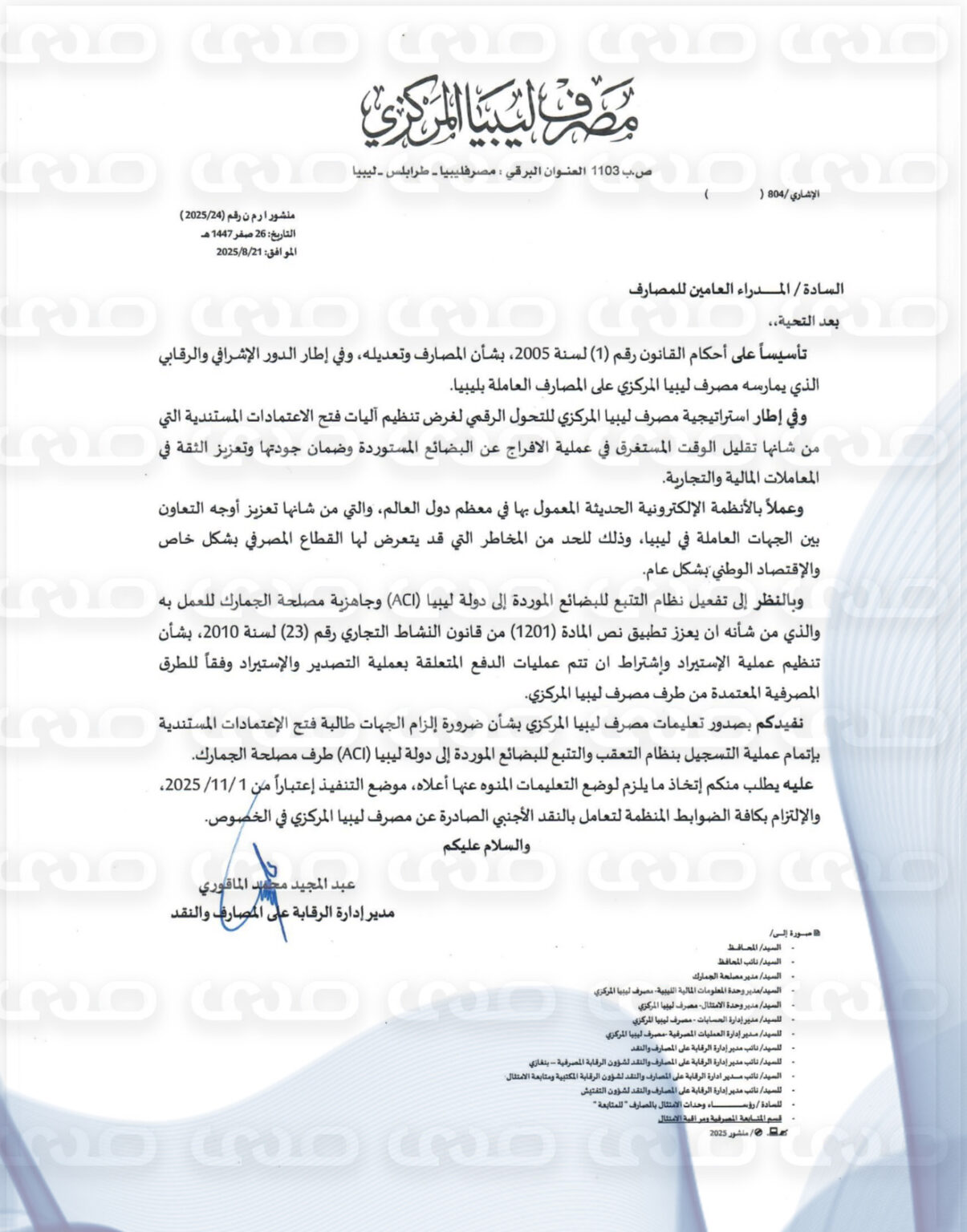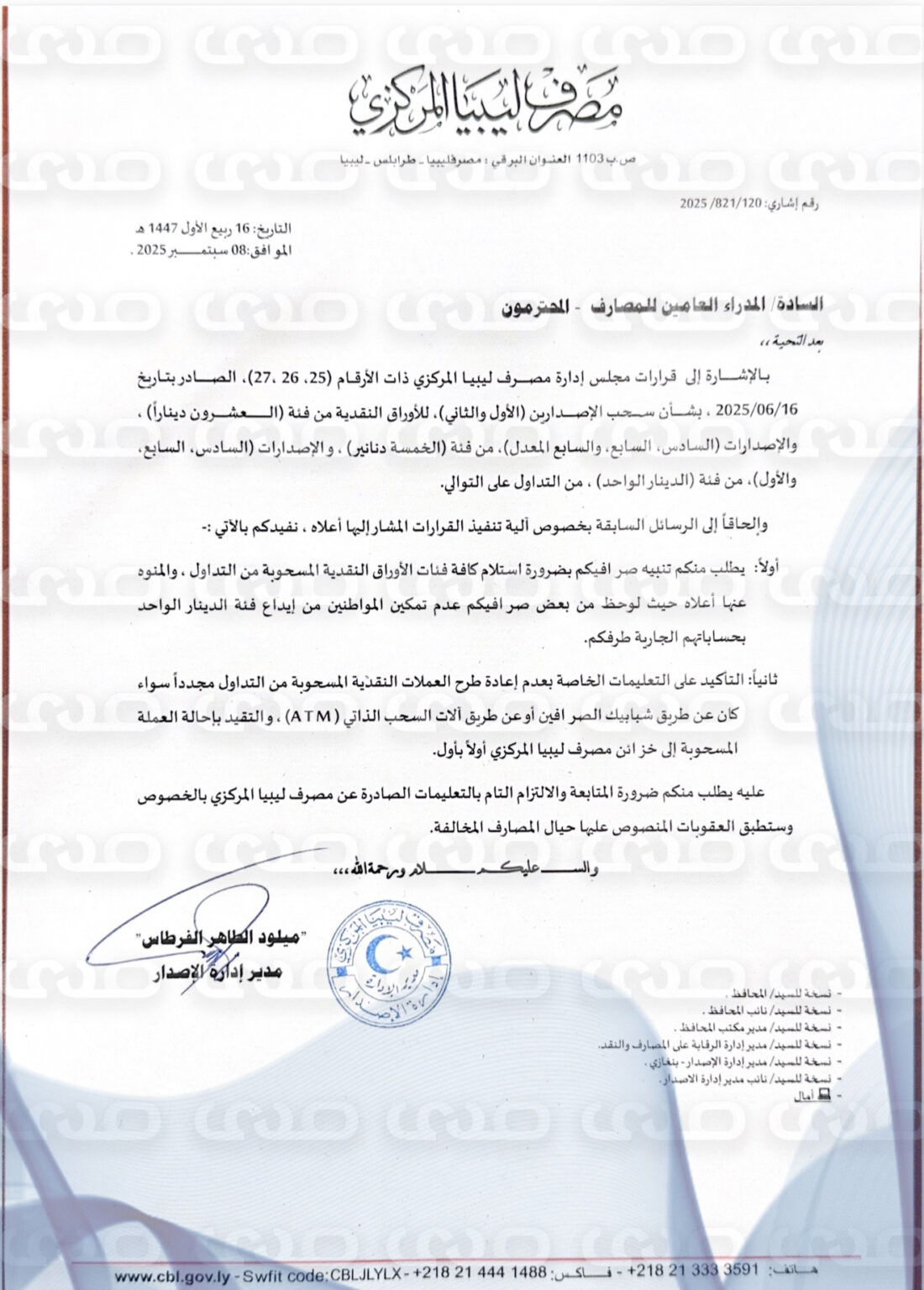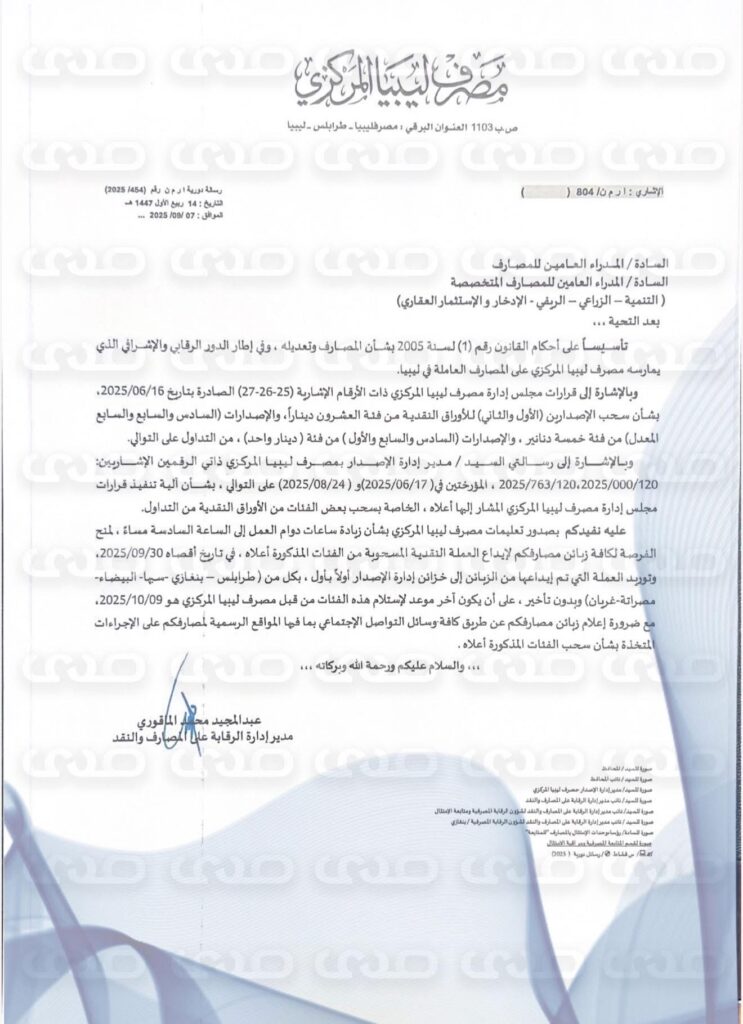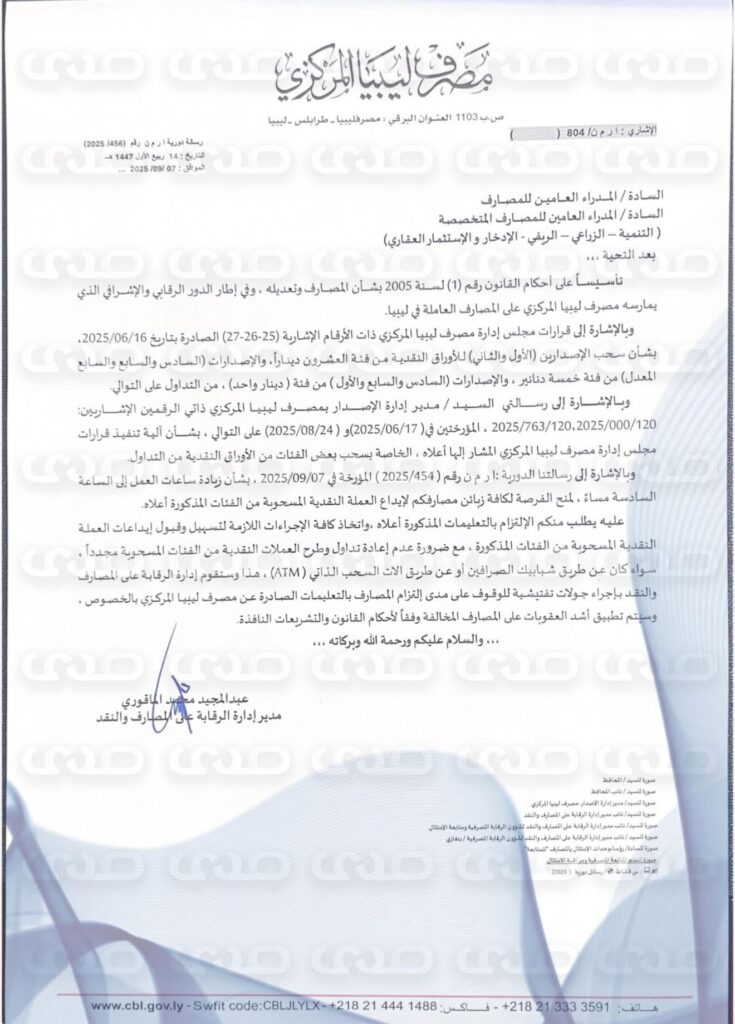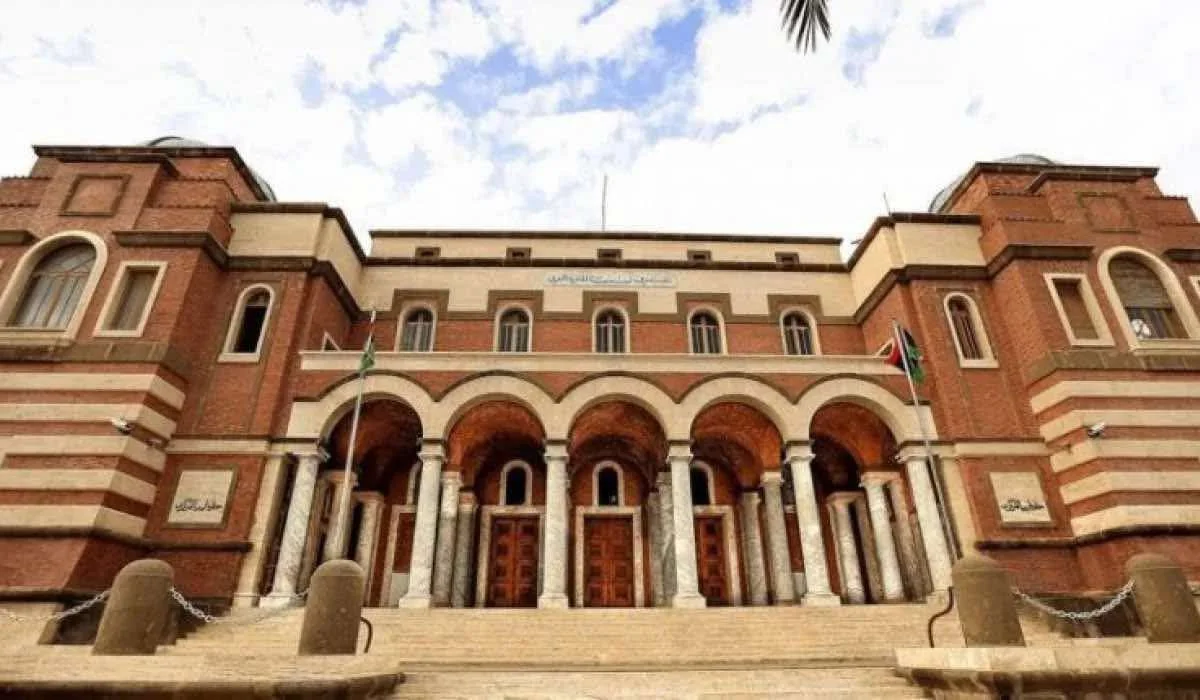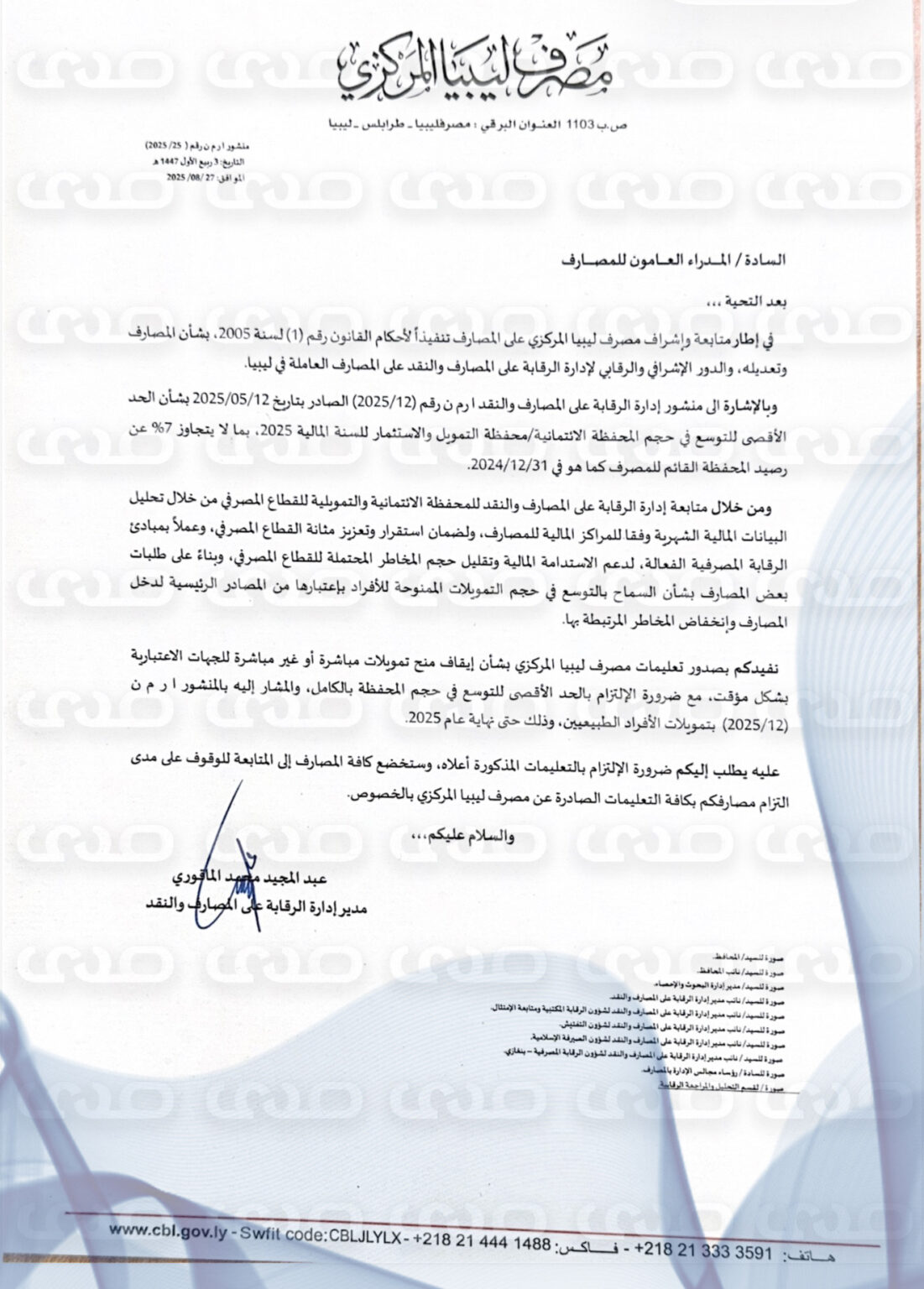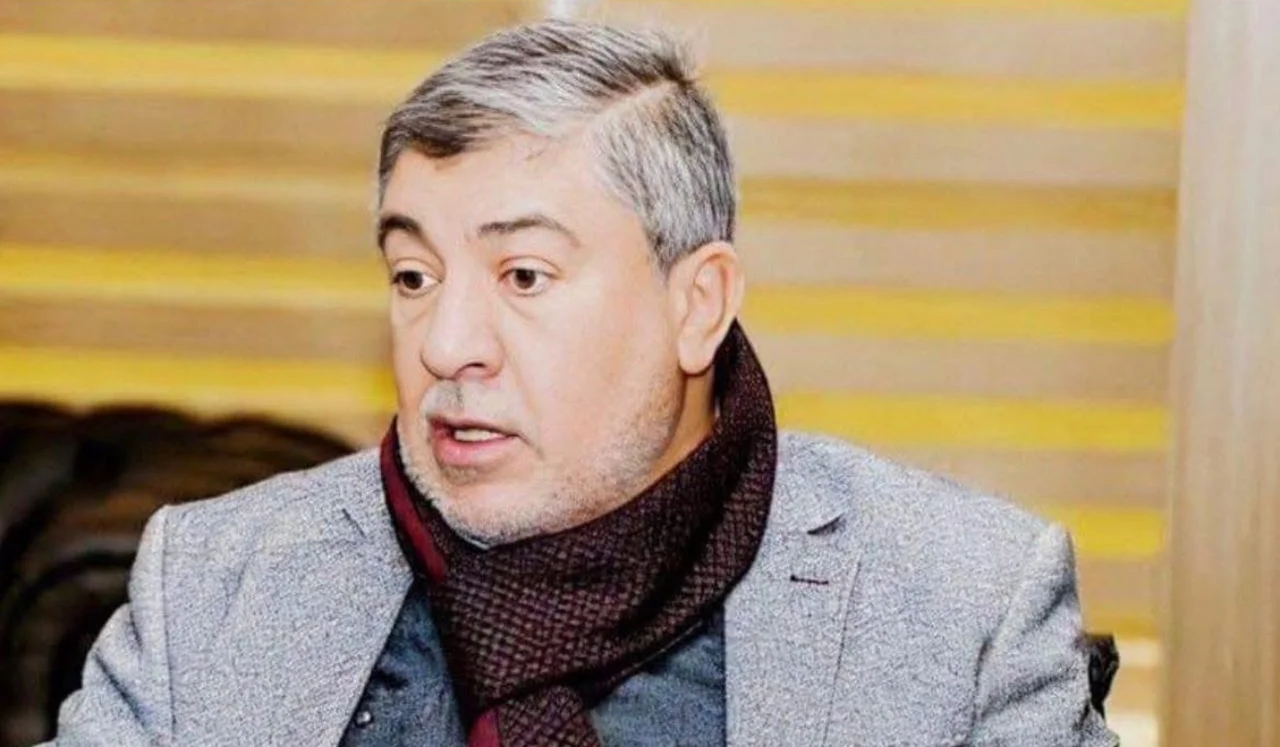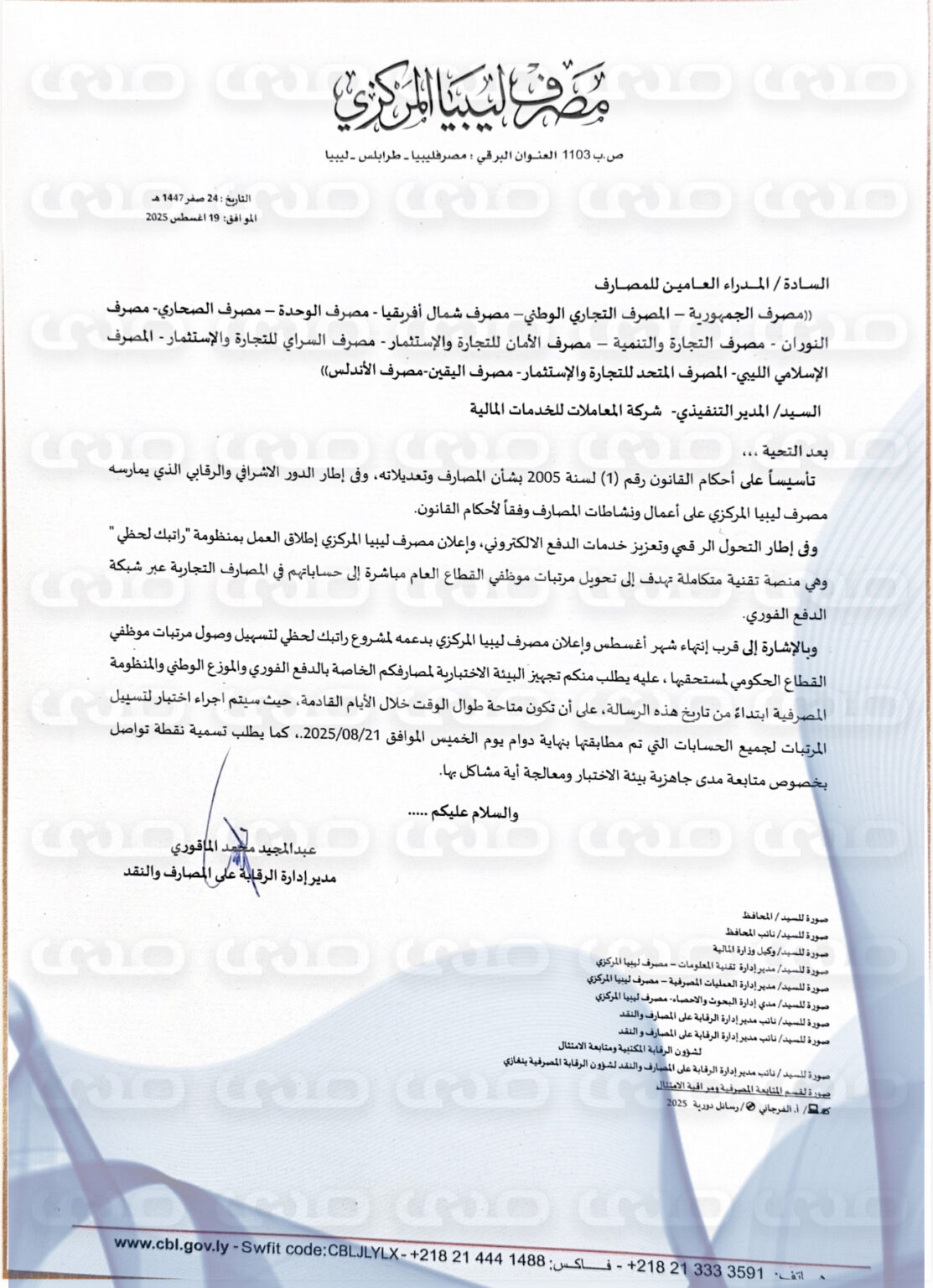Economist Ibrahim Wali wrote an article in which he said:
Through memos, articles, videos in newspapers, TV channels, and on social media, the Governor of the Central Bank of Libya has appeared warning and threatening exchange companies, declaring that he will not tolerate violations of legal regulations—which could even lead to the revocation of some of the 230 existing licenses. He also confirmed lowering the Libyan dinar exchange rate to 7 dinars, vowing to fight the parallel market with the force of law and security authority. He has met with the Attorney General about illegal speculation, as well as with the acting Minister of Local Government, the head of the Municipal Guard, and the Ministry of Interior, to support efforts in monitoring, prosecuting, and penalizing violators, including exchange companies, while ensuring they hold valid operating licenses. Even gold traders and their shops are under the watch of the Municipal Guard and the Ministry of Interior.
Through these measures, I believe the Governor is attempting to bring the parallel market to the Central Bank’s table, confronting them with reality by expanding licensing of exchange companies and engaging directly with them to control the parallel market.
However, these strict measures are a double-edged sword: either the expansion of exchange companies—now 230—carries significant risks without standards and controls, effectively turning them into substitutes for commercial bank branches conducting multiple banking operations; or, the Governor has a future vision where this large number will shrink by half, as weaker companies unable to comply with the Central Bank’s regulations are eliminated under heavy monitoring by the Municipal Guard, police, and regulators. The UAE offers a precedent: 140 brokerage licenses were granted within three years, but this dropped to 74 after stricter standards were enforced.
There are four categories of brokerage companies in such systems:
- Type 1: Cash exchange (buying and selling currency only).
- Type 2: Handling transfers.
- Type 3: Processing salary transfers for employees.
- Type 4 (newest): Linked to electronic payments.
Unfortunately, none of these categories exist in a structured way within Libya’s exchange companies.
So, what are the monetary, financial, and commercial arrangements to ensure the success of the Central Bank’s measures—especially with the Ministry of Finance (responsible for revenues and parallel spending) and the Ministry of Economy (responsible for prices of food, medicine, exports, and imports)? What procedures will exchange companies follow in their professional work, without a clear legal and administrative framework to define requirements and operations in line with the Central Bank’s objectives?
There will be many serious challenges, unless the Central Bank effectively controls money supply. We are talking about 153 billion Libyan dinars—the steadily growing money supply. The monetary base keeps expanding and demanding dollars, while government spending is uncontrolled under two rival administrations.
I support the Central Bank in strengthening our national currency and reducing the dollar’s value. Libyans long for the days when one dollar equaled 30 qirsh, and when the dinar had strong purchasing power backed by ample foreign currency reserves. Sadly, what we hear and see is not the reality: the Central Bank faces a shortage of foreign currency, and the state relies on oil for over 80% of its income. If oil falls below $70 per barrel, the state cannot even pay salaries.
Thus, a fluctuation of 20 qirsh in the dollar’s value depends on information available to speculators and the Central Bank’s secret strategy against them. The exchange rate is determined here—but this is not a short-term issue, it requires long-term solutions. If the Central Bank delays support to banks and exchange companies, the dinar’s value will decline, harming both the financial market and citizens. We want to strengthen the dinar under continuous monetary stability—this is what citizens want and what the Central Bank aims for.
If the Central Bank maintains and defends the official exchange rate of 5.45 LYD/USD, but then adds a 15% levy—raising the effective rate to 6.45 LYD/USD in violation of court rulings—and manages to reduce the wide gap between the official and parallel rates, then credit is due to the Central Bank, its Governor, its Board of Directors, and its staff.
May God aid the Central Bank of Libya, unite it with the Ministry of Finance and the Ministry of Economy, and protect it from obstructers—especially the two parliaments and the reckless spending of two rival governments. (One hand alone cannot clap.)
